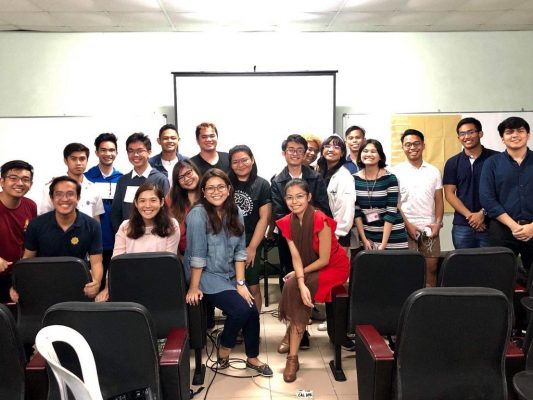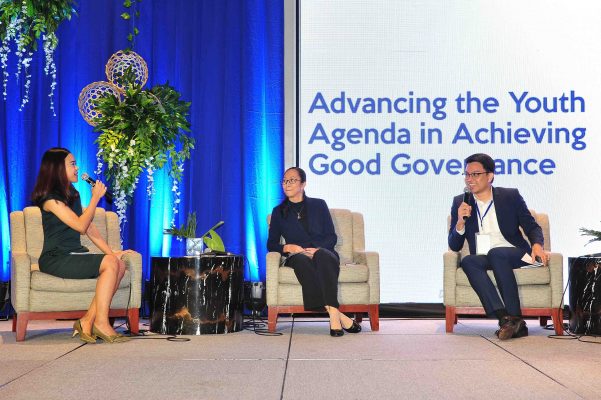
For global observers of democratic governance and the rule of law, recent developments in the Philippines have been discouraging. Headlines on the current administration’s apprehension of political prisoners, authorization of extrajudicial killings, and subordination of the rule of law underscore the diminishing accountability of the government to its public. In this troubling context, the Center for International Private Enterprise (CIPE) has undertaken its Innovations for Good Governance Project, also known as INNOVATE-GOV. In partnership with the Institute for Solidarity in Asia, Philippines Chamber of Commerce and Industry, the National Competitiveness Council, De La Salle University Jesse M. Robredo Institute of Governance, and Makati Business Club, INNOVATE-GOV was organized with the purpose of assessing the quality of governance at the local and national levels, and to identify best practices for engaging private and public sector stakeholders in undertaking good governance advocacy.
The initiative began with two Regional Dialogues in Puerto Princesa and Cagayan de Oro to congregate voices from civil society organizations, private sector representatives, youth leaders, media, and public officials to share their success stories in setting up institutions to demand accountability and transparency from the government. These stakeholders reconvened on October 9, 2018 at INNOVATE-GOV’s Good Governance National Summit in Manila, where the project’s six grant recipients were recognized for their innovative efforts to engage their local communities and to educate and promote democratic values in the Philippines. Each grant recipient engages a different demographic and sector of the Philippine population, including women and youth leaders and sub-national governance councils, in order to empower local voices demanding good governance.
Below, the Institute for Leadership, Empowerment, and Democracy Inc. (iLEAD), a think tank consultancy and resource center in the Philippines that focuses on strategic policy work to strengthen democratic institutions and a grant recipient of INNOVATE-GOV, explains their work with their network of youth organizations and advocates together with the development of their youth-led governance agenda. To view iLEAD’s The Government We Want vlog series, visit www.ilead.ph.
The Search for the Youth Agenda on Governance
Contributor: The Institute for Leadership, Empowerment, and Democracy Inc. (iLEAD)
With increasing challenges in democratic spaces and values around the world, can the youth still claim its space in nation building? This has been the question that guides us as we launched discussions with different young individuals in recent months for our project, The Government We Want.
This initiative springboards from the premise that with innovative platforms and voice-giving conversations encouraging healthy and pluralistic discourse, the Filipino youth can reinvigorate their generation’s democratic project towards influencing the quality of politics and governance in the Philippines. With INNOVATE-GOV as an anchor program, this project also finds value in multi-stakeholder participation and meaningful partnerships. It aims to break down the barriers of political colors and demographics as different youth groups sit down to talk about and define the kind of governance they want for the country.

For this project, we have gathered 40 youth groups and leaders, as well as a magnitude of stories on what the youth envision for our nation and the sectors or industries that they represent. Spanning from LGBT rights, to climate action and local governance, the issues that these groups put forward highlight youth participation as a fundamental force in Philippine society. These insights will be put together as a comprehensive agenda to inspire further collaborations across this youth network and inspire cross-sector support. But more than a network-building and agenda-setting initiative, the project has also become a platform to surface the different realities that confront the youth of today, and months into it, we have collected a few:
- Youth is a powerful sector. In the Philippines, a country that has gone through multiple societal transformations, the youth sector remains a powerful force. They constitute 29% of the Philippine population and almost half of total registered voters in the country. Whether out in the streets or within their own circles, Filipino youth continues to forward their agenda on various socio-political matters. They can potentially shift narratives and innovate on solutions in pursuit of development and democracy.
- Youth adapts and re-invents. While frequently tagged as inexperienced or too idealistic, the youth continuously proves to be a relevant segment of society. The youth continues to innovate, re-create and explore creative means to reinterpret politics and governance in manners that they are comfortable with. As much as they seem to veer away from traditional political processes, like enlisting in political parties or attending government-sanctioned assemblies, we see them thrive in online spaces and intimate forms of activism. They talk to their colleagues, integrate social consciousness in their online posts, and engage in conversations that are issue-based rather than politically polarizing.
- Youth banks not on age but on ‘why.’ The youth in development sector primarily anchor on their purpose more than their age in making their advocacy work. They go back to their ‘why,’ and it is their personal experiences and viewpoints that fuel them to act and constantly innovate on solutions. They recognize the need for allies and support and attach significance to collaborations and multi-stakeholder partnerships in sustaining their work. In our discussions with the network, we witnessed how different organizations, of different tracks and sectors, can effectively build on the capacities, ideas, and resources of each other and collaborate on ways to further their visions.
Tracey Fung is a Program Assistant for Asia and the Pacific at the Center for International Private Enterprise (CIPE).
Published Date: October 15, 2018
